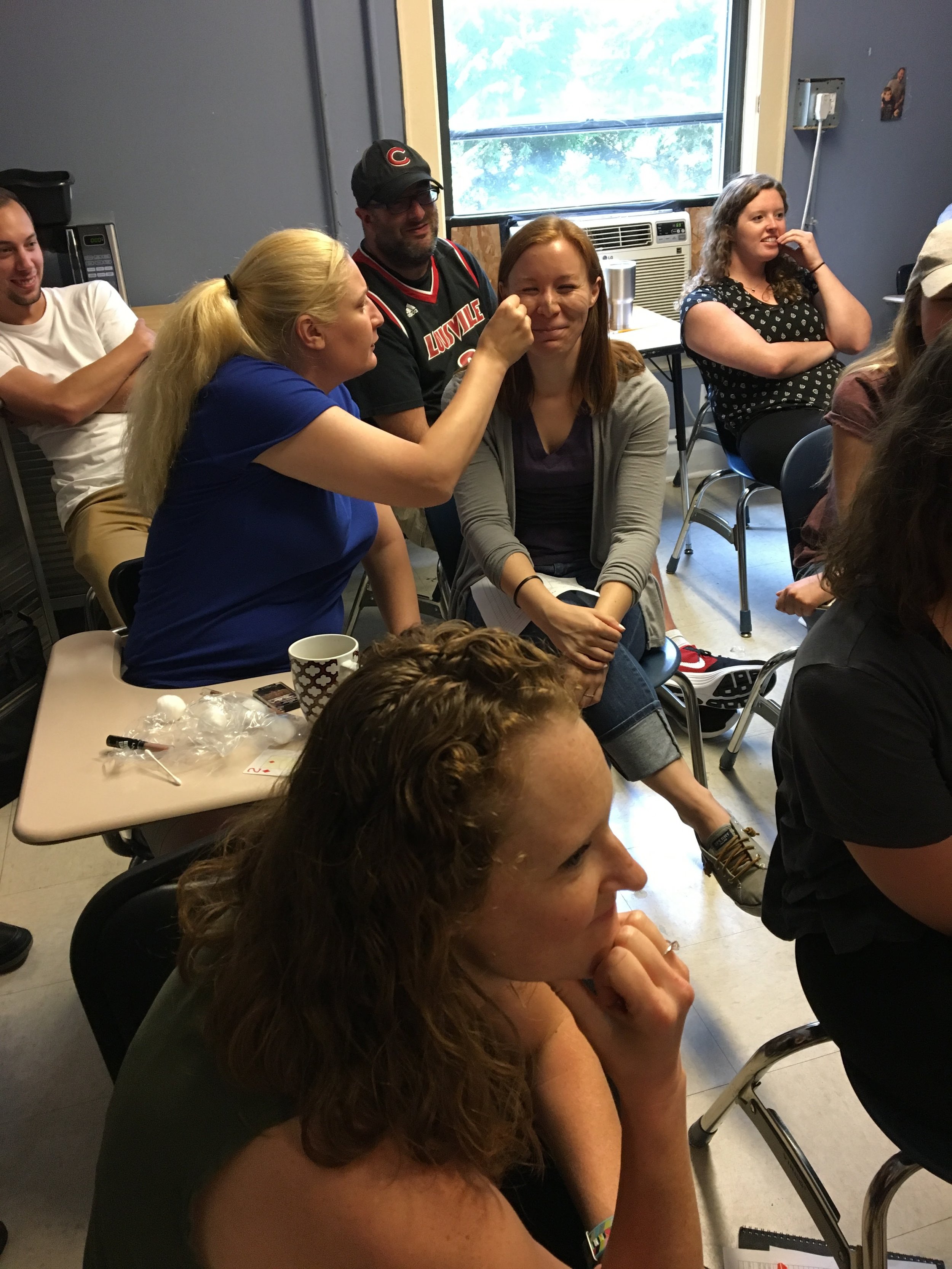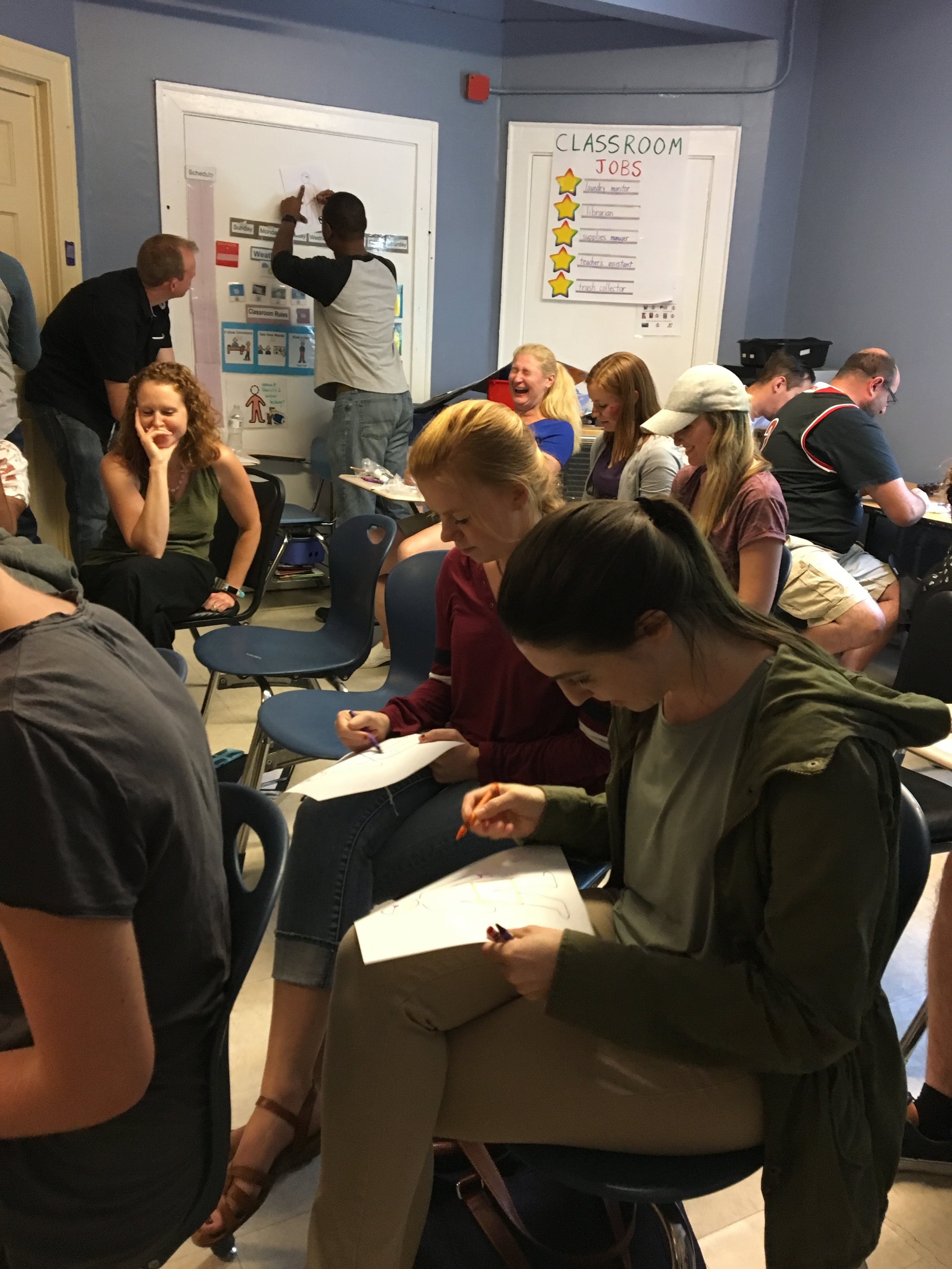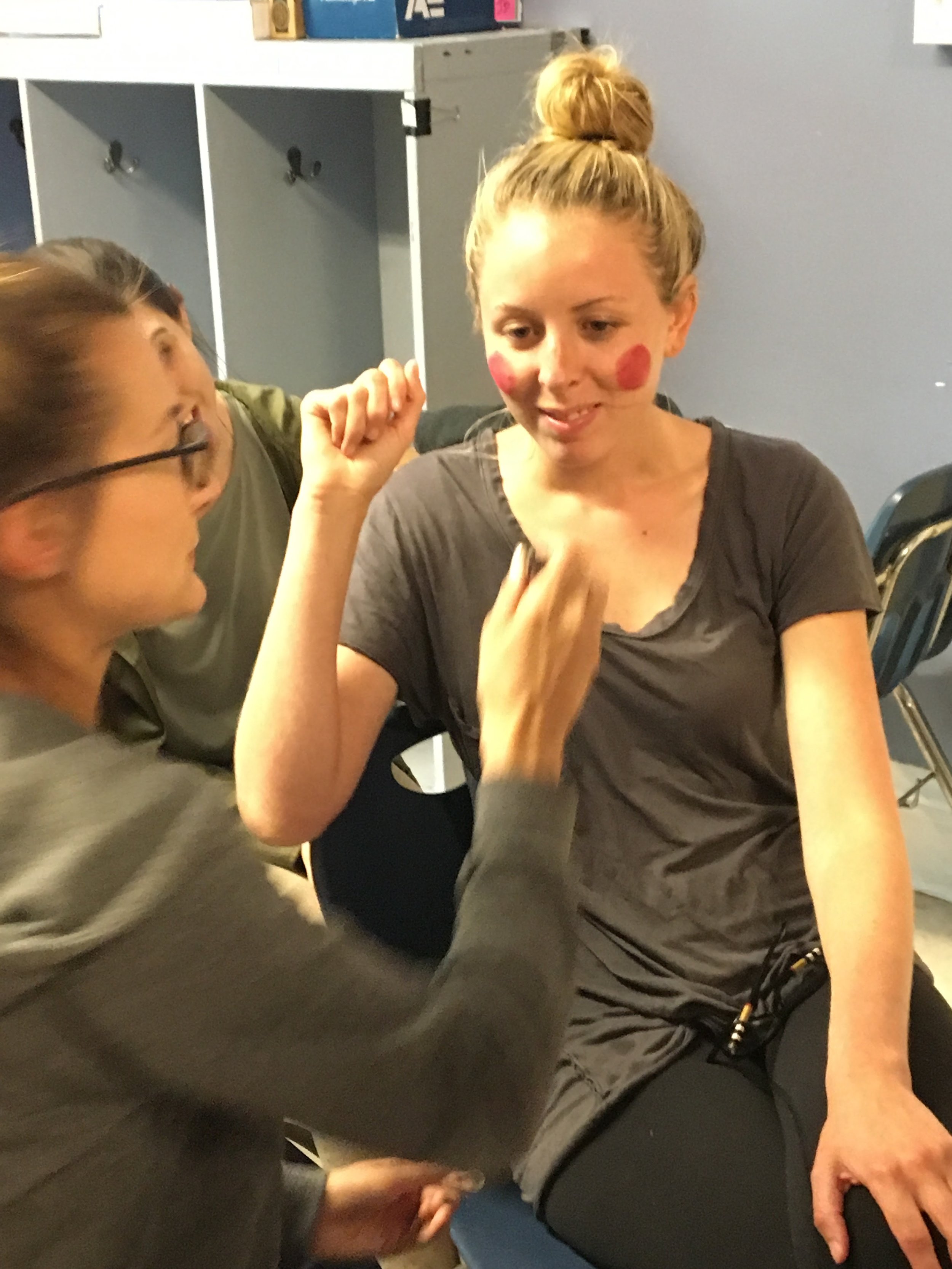Ever wonder what we're doing when we have those early dismissal days each month? Well, our knowledge-hungry team is learning how we can be even better! Each year, we set a program goal related to a research-based or promising practice in the autism field. Last year, we spent a good chunk of the year learning about elements of Structured Teaching (from TEACCH - see www.teacch.com for more info). This year, one of our program goals this year is for our team to learn more about ways to incorporate fundamentals of ABA (Applied Behavior Analysis) in the classroom. This semester, we've focused on Task Analysis and Discrete Trial Training.
Discrete Trial Training is a way of presenting short, quick tasks, within a clear (1) direction - (2) response - (3) correction / praise framework. It is most commonly used to teach basic rote skills like matching, or identification of fundamentals like colors, shapes, numbers, letters, sight words, etc. Often, this is what is most associated with ABA - but it's not ALL of ABA.
Task Analysis is a way to break down a complex task into smaller, more manageable pieces. We practiced and laughed (a lot), as we taught each other to put on makeup, build ice cream sundaes, and draw pirates (the pics above show some of the fun!). One of the things we reiterated was the importance of being specific when writing the TA, and consistent when using it - that way, everyone is teaching the student to do the task the same way ... which increases the likelihood of learning! We use these for more complex task sequences - like brushing teeth, washing hands, tying shoes, making a purchase, taking out the trash, etc.
For more information on Task Analysis and Discrete Trial, check out these info sheets from the National Professional Development Center on Autism Spectrum Disorders (NPDC):




